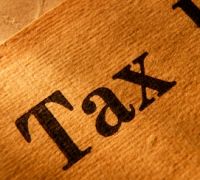

The self-proclaimed “greenest Government ever” has this month delivered some of the most vicious spending cuts ever to the environment. The Department for Environment, Food & Rural Affairs (Defra) appears to be hardest hit, with its total budget reduced by 30%, which is considerably higher than the Government average of 19%. As a result, the department and its delivering agencies, including the Environment Agency, which monitors pollution and protects against flooding, and Natural England, which helps look after the natural world, will be forced to trim between 5,000-8,000 out of a total of 30,000 jobs.
But perhaps the most interesting point of the spending review was the blow to participants in the carbon-cutting CRC Energy Efficiency Scheme, which has been turned into a tax. The 3,000 companies and organisations with a medium-size energy use, which includes councils and NHS trusts, now face a tax on the carbon they emit, while many that invested in energy-efficiency measures encouraged by the legislation are penalised. It also seems that the biggest polluters will evade the taxman.
The tax could be considered good news for the environment because it provides a simplified incentive to cut carbon, but it does raise questions about the fairness of taxing small-to-medium polluters. The CRC was introduced with the promise that it would be revenue-neutral and that all permit costs would be recycled back to participants. Revenue generated by every tonne of carbon emitted will now be going straight to the Treasury. While the CRC is likely to provide an increased incentive for medium-size businesses to reduce their carbon emissions, it comes at a difficult time for many participants. Although the payment phase has been pushed back a year to 2012, compliance is going to be much more expensive with participants facing tax bills of millions of pounds.
There is also the issue of apparently punishing preparedness. Many organisations invested in activities such as the Carbon Trust Standard Certification and other Early Action Measures, the benefits of which will be greatly diluted by the revision of the CRC. The value of performing well in the CRC League Table remains unchanged, however its impact has been reduced as the financial gain for a high placing has now gone. Past investment now has a delayed pay-back period, and in some cases none at all.
However, the biggest criticism is that big polluters seem to get off tax-free. The European Union Emissions Trading Scheme (EU ETS), which captures large emitters such as power stations and heavy industry, remains a cap-and-trade scheme. Currently the cap is ineffectively high as a result of the recession and a weak political commitment to reduce emissions by only 20% compared with 1990 levels by 2020. A commitment of 30% has been shown necessary to price carbon sufficiently high to encourage low-carbon investment, so until this happens companies in the EU ETS are under little pressure to change their ways.
In addition, EU ETS participants receive free emission allowances, often more than what they require. These can convert to a massive windfall profit when they are sold on the carbon market. As suggested by James Ramsay, Commercial Director and Head of CRC at Carbon Clear, the fact that a tax is being applied to only small-to-medium-volume emitters is not only grossly unfair, but supports the argument that a tax on all emitters would be a more efficient and effective form of achieving emissions reductions.
For more information, see: